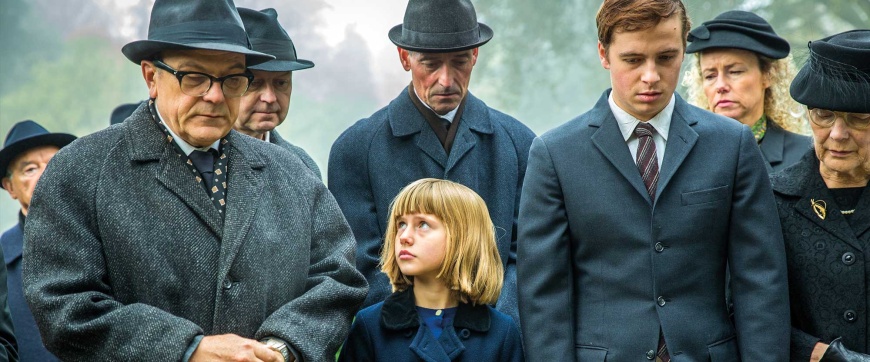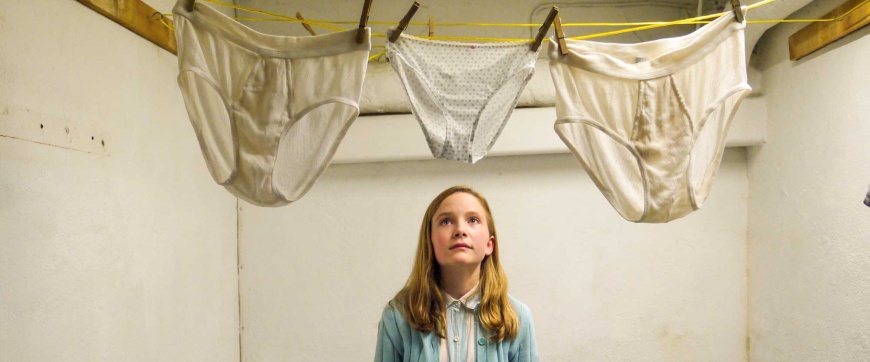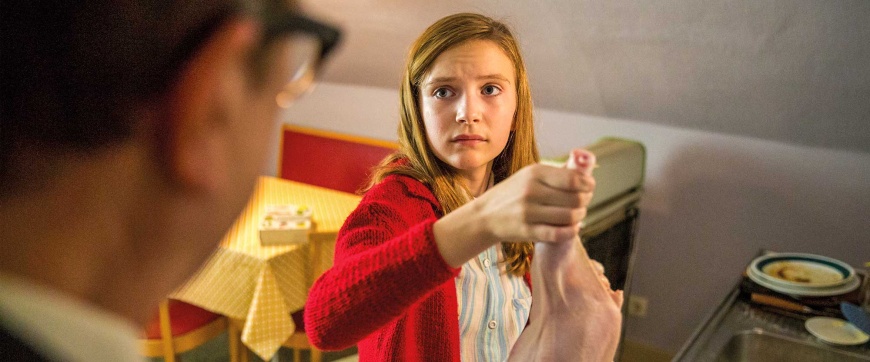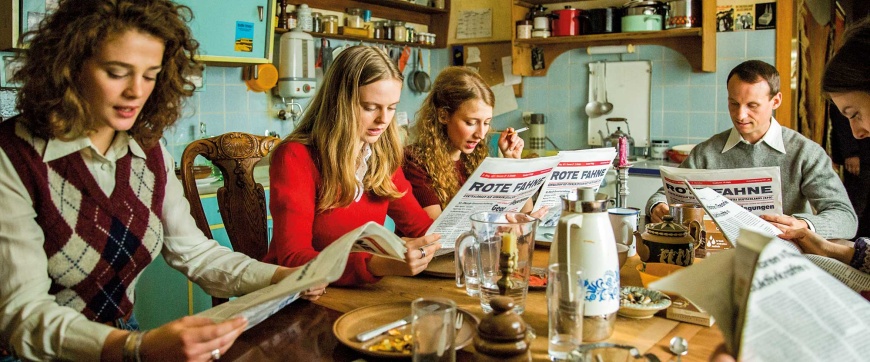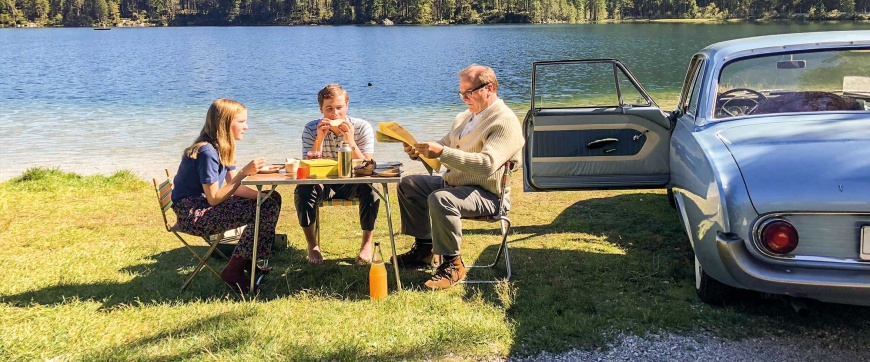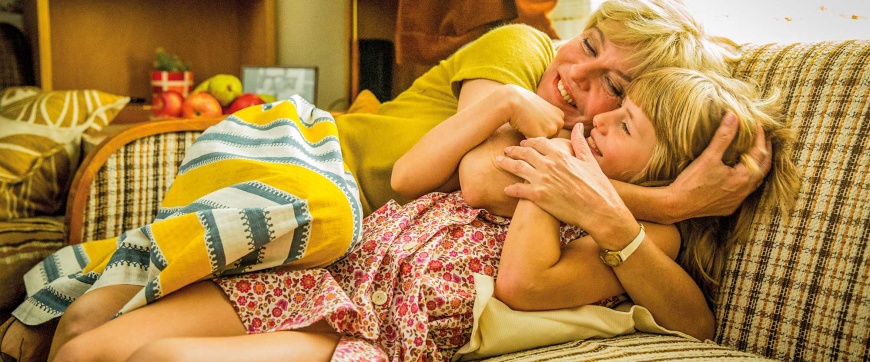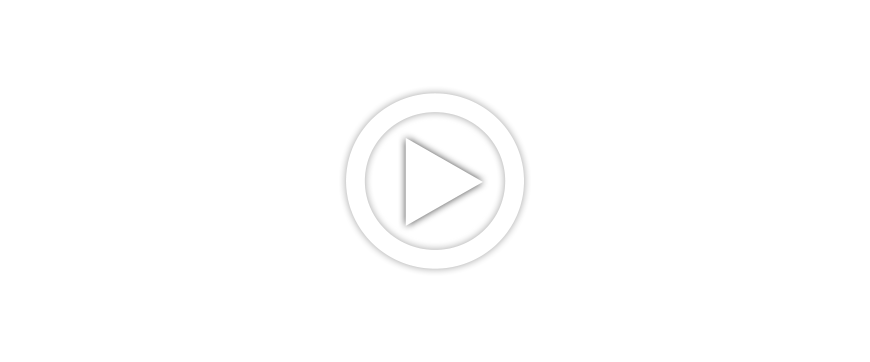Director's Commentary
Petra Seeger on "Vatersland"
The initial spark for "Vatersland", which could be described as my 'life film', came when I saw the films of the female filmmakers of the 1970s – Helke Sander, Helma Sanders-Brahms, Jutta Brückner, etc. – because they made their own lives the subject of their films. However, it would be decades before I ventured into this particular autobiographical work. The road to realisation was long and stretched over 17 years and many obstacles – always interrupted by other films I was making. Fortunately, there were loyal partners for "Vatersland", both on the production side and on the level of dramaturgical cooperation.
I wanted to make a film that expressed the feelings, experiences and painful moments of my childhood as authentically as possible. It was about nothing less than going back there, remembering, descending to bring treasures, hidden and painful things to light and to give these isolated memories an artistic form; to create a flow from the individual fragments that becomes a cinematic narrative.
While writing, I looked at the many family photos and 16mm film footage of us from my father's (a photographer) large archive to further my memory. Slowly, an interplay emerged between this very material and the script I was writing. I decided to use my father's material in the film, as it represents the self-portrayal of the nuclear family of the 60s and at the same time contradicts all that I had felt and that the pictures did not show.
During filming, when I was standing again in the cramped attic flat of my childhood, I was sometimes afraid of the ghosts I was calling... But I was delighted by my "new" family: mother, father, brother and my little Marie, my alter ego as a child. Working with actor Bernhard Schütz – who embodies my father – on the nuances of little Marie's disregard or picking up on his ideas that were better than the father-original.... Or trying out wigs with the actress Margarita Broich to make her look like my mother. Or even finding myself in the little actresses... All this was creative and liberating. I was surrounded by a new family and a film crew with whom I could work on the realisation and expression of all that did not come to fruition in my childhood.
At the age of 10, Marie experiences her personal trauma, the early death of her mother, in the historically specific situation of post-war Germany. In the film, coming to terms with this family fate is closely tied to contemporary history. How is a successful personal and familial mourning process supposed to work for a father who belongs to a generation of fathers who were 'incapable of mourning' over their own guilt and losses? What does everyday life look like for little Marie, without female influence, shaped by her father, who returns home from war and captivity, has settled into the German economic miracle and has grown up as a man with a strict division of roles? Marie must survive in this fathersland.
The feminist view of the developmental story of Marie, who grows up in a family where dealing with images and film is passed on from father to son and women only find themselves as objects in the male images: Marie succeeds in breaking this cycle! She goes from being an object to being the subject of her family history. She turns the camera around, stands behind the camera and recreates the past, from her point of view. She has taken over the direction of her own life.
For me, "Vatersland" is also a contribution to the debate about the position of women in the film business and the question of why women, despite seemingly equal educational opportunities, are so under-represented in leading artistic positions. I think that a closer look at the socialisation of the respective generations of women describes the finer reasons for the existing inequality.
As subjective and also personal as the story of "Vatersland" is located, not least through the use of documentary material, the themes the film deals with are universal: Life and death, loss and mourning, family structures and overcoming trauma, artistic development as well as father and mother, the formative portal figures of our lives.


